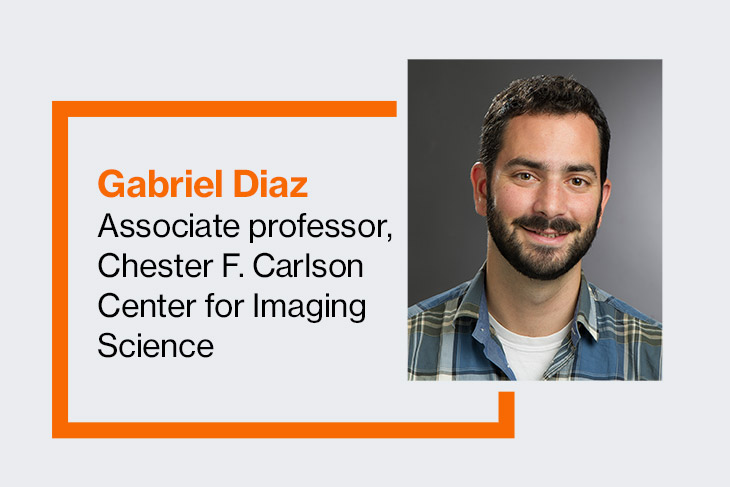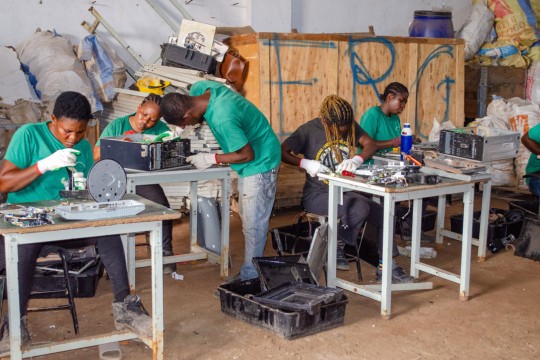RIT researcher receives award to advance study of cortical blindness
Gabriel Diaz has received the Research to Prevent Blindness/Lions Clubs International Foundation Low Vision Research Award
Rochester Institute of Technology’s Gabriel Diaz, associate professor in the Chester F. Carlson Center for Imaging Science, has earned the Research to Prevent Blindness/Lions Clubs International Foundation Low Vision Research Award (LVRA), in collaboration with researchers at the University of Rochester.
The award is given annually to provide funding for innovative research, which demonstrates out-of-the-box thinking, focuses on the visual system that is damaged, and seeks greater understanding of how the visual system and brain respond to severe and chronic visual loss.
Diaz and his team are aiming to understand the effects of cortical blindness on the processing of visual information used to guide behavior, like driving a vehicle. Cortical blindness affects nearly half a million stroke patients in the United States each year. The loss of vision drastically impacts independence and quality of life.
“This research is all about learning what type of information the brain uses to navigate the world,” said Diaz. “We hypothesize that the presence of cortical blindness results in a degraded ability to process visual motion information that research has shown is crucial for navigation.”
Past studies on cortical blindness have primarily focused on how it affects low-level visual abilities, like the ability to discriminate subtle patterns of motion in the blind field, by using methods that do not accurately replicate actual tasks individuals with cortical blindness struggle with on a daily basis. Diaz’s research will more accurately reflect real-world visual problems using virtual reality simulation. Participants in the study will use a steering wheel to keep a simulated vehicle in the center of a roadway winding through fields and forested areas.
“People are slow to adopt to new technologies like this,” said Diaz, “but it is clear researchers are starting to move toward adopting emerging display technologies and immersive studies that get them away from their desks.”
The collaboration between Diaz, who has extensive experience in studying how humans use vision to guide action, and Krystel Huxlin, the James V. Aquavella Professor of Ophthalmology at the University of Rochester, who has studied cortical blindness and brain function for more than two decades, builds upon the growing relationship between the two Rochester schools in the visual and cognitive sciences. The LVRA supports this type of research that aims to improve the lives of the visually impaired.
“One of the main goals of this study is to produce results that are able to help produce new methods of rehabilitation for those who suffer from cortical blindness,” added Diaz. “With future research we hope to propose rehabilitation paradigms that might help these people live better because their quality of life if really affected by their inability to drive and be autonomous.”
RIT imaging science Ph.D. student Arianna Giguere has been closely involved in the design and development of the research project and has been largely responsible for the collection and analysis of the preliminary data that made the award possible.
“I am so proud to be a part of this motivated team,” said Giguere. “I couldn’t be more excited to work alongside these passionate scientists on our meaningful research with the support of this prestigious award.”
The research team also includes academic consultants Duje Tadin from the University of Rochester and Brett Fajen from Rensselaer Polytechnic Institute.











